How to recruit local volunteers
For the Volunteer Organisers Network’s second event, Gabrielle Macbeth, Volunteer Coordinator at Glasgow Women’s Library (GWL), shared her experience with recruiting local volunteers.
GWL is the only Accredited Museum in the UK dedicated to women’s lives, histories and achievements, with a lending library, archive collections and innovative programmes of public events & learning opportunities. GWL boasts a team of about 80 volunteers, many of whom live near the museum in Glasgow’s East End, a vibrant area with a rich and proud heritage, but which is still one of the most deprived in Scotland.
Gabrielle gave the following tips for recruiting local volunteers:
Partner with other organisations in your area
Do some research into other organisations, community groups or charities in your area. Reach out to them and have a chat about how you could support each other. They can advise you on how to tailor your volunteer roles to their service users, and circulate your opportunities to them. Remember that partnerships should be mutually beneficial and that you have perks to offer their service users – engagement with culture and heritage has been shown to increase people’s wellbeing.
For example, Gabrielle linked with a local housing association and adapted GWL’s volunteer roles into short placements to suit the association’s employability courses. She’s also worked with the Scottish Refugee Council’s Volunteering Team to recruit refugee and asylum seekers for GWL’s volunteer programme.
Make sure your organisation reflects the people you want to recruit
When trying to recruit any group of people, ask yourself: do you put on programmes that are relevant to them? If people can see themselves represented within an organisation, they are more likely to attend events and perhaps go on to volunteer. Consider who is represented in your programmes, collections and staff.
Be an active member of your local community
Being active in your community can help build your organisation’s reputation as friendly, welcoming and community-minded. For example, you could:
- Host pop up events at other venues
- Attend other community events
- Have a stall at a local market
- Put up posters in nearby venues
Pace yourself
Reaching out to new volunteers is a marathon, not a sprint! Building trust and relationships takes time. It can help to make achievable goals for yourself, such as:
- Develop 1 partnership with a local organisation per year
- Host 3 open days for the public per year
- Co-curate 1 exhibition with local people per year
Question & answer
The event included a Q&A portion with some great questions from attendees:
Q: What methods of recruitment have been effective in recruiting local people who weren’t previously interested in history or heritage?
A: Gabrielle echoed her previous points about partnering with local organisations as an effective way to reach new audiences. She explained that these organisations have already built up trust with those audiences, so if they promote your opportunities, their service users are more likely to volunteer with you. A participant added that it can be helpful to emphasise a range of volunteering benefits in your advertisements, as people have different reasons for wanting to volunteer. Another participant suggested making recruitment more accessible by covering the cost of disclosure checks and offering multiple ways for people to apply (paper application form, online, phone call, in person).
Q: What is the biggest challenge of resuming volunteering post-COVID?
A: Gabrielle expressed that she’s still grappling with new ways of working. As restrictions loosen, her organisation is taking a blended approach with both online and in-person programme delivery, and staff are working staggered shifts. In addition to new working patterns, additional health and safety protocols also change how on-site volunteers can interact. One participant shared that Historic Environment Scotland has produced a re-induction checklist to help volunteer organisers think through all of the new aspects of post-COVID working and volunteering. Another participant added that it can be difficult to gauge how volunteers will feel about being back on-site, and they stressed the importance of remaining flexible with volunteers as we all adapt to the new normal.
Q: How have you changed your usual offer to adapt to COVID-19 restrictions?
A: Gabrielle said that GWL pivoted to online volunteering opportunities, such as writing for social media and their website, editing and subtitling videos and creating virtual tours. She flagged up that online volunteering is not accessible to everyone, and that we should try to find ways to bridge the digital divide. Gabrielle helped volunteers get online by applying to the Wellbeing Fund, which enabled her to distribute some laptops to volunteers and provide them with Internet access. She also signposted volunteers to digital skills training sessions.
Join Make Your Mark
Join 100+ volunteer-involving heritage organisations in Scotland who are working together to make heritage volunteering for all.

About the author
Make Your Mark
This is the make your mark author, can be used as a default.